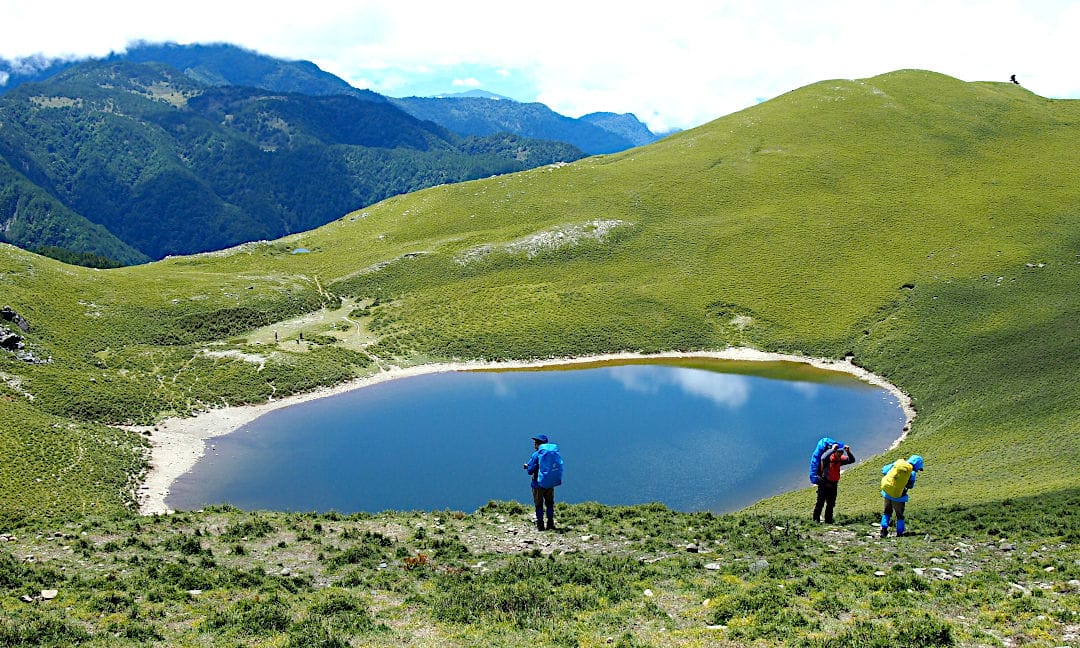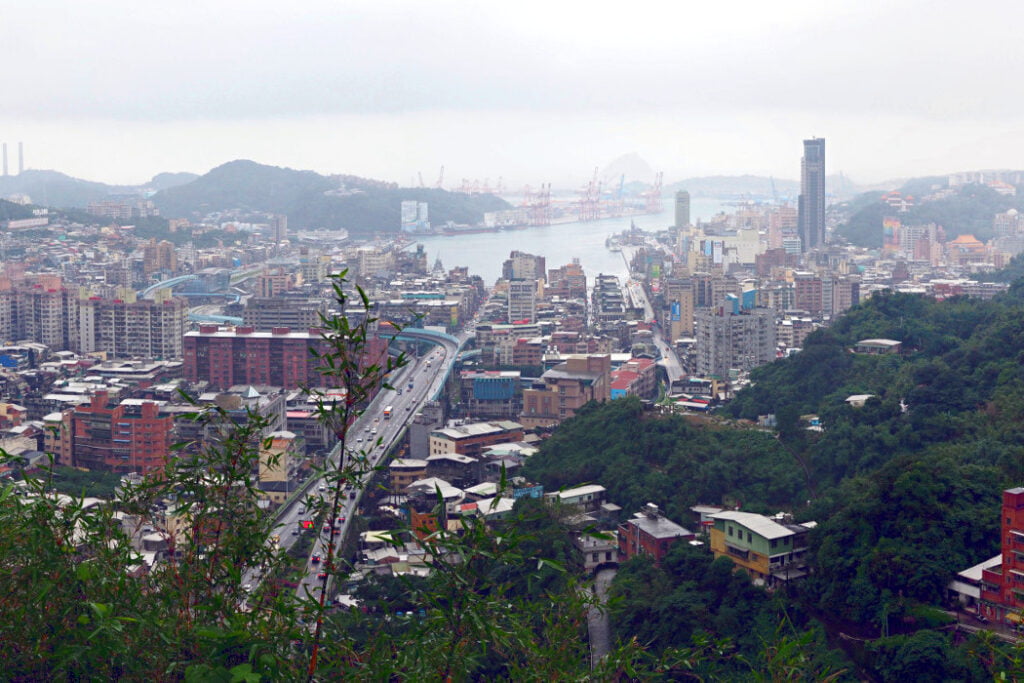As I described in the first part, the first day ended with a hearty dinner at the Jiaming Lake Shelter. Unfortunately for me, it also ended with the onset of acute mountain sickness. It started with a headache and soon progressed to nausea. Thankfully, our guides had medication that helped alleviate the symptoms. I suspect the rapid ascent was the main culprit. In just one day, we drove from Chishang (池上) at 270 m above sea level to the trail entrance at around 2,000 m, and then climbed further to the cabin at over 3,000 m. My body simply didn’t have enough time to acclimatize to the altitude.
The second day began much better. I felt significantly improved, and the weather couldn’t have been more perfect—clear skies, warm sunshine, and comfortable temperatures. The guides mentioned that we were the first group of the year able to continue the hike to Jiaming Lake, as previous groups had to turn back due to poor weather conditions.
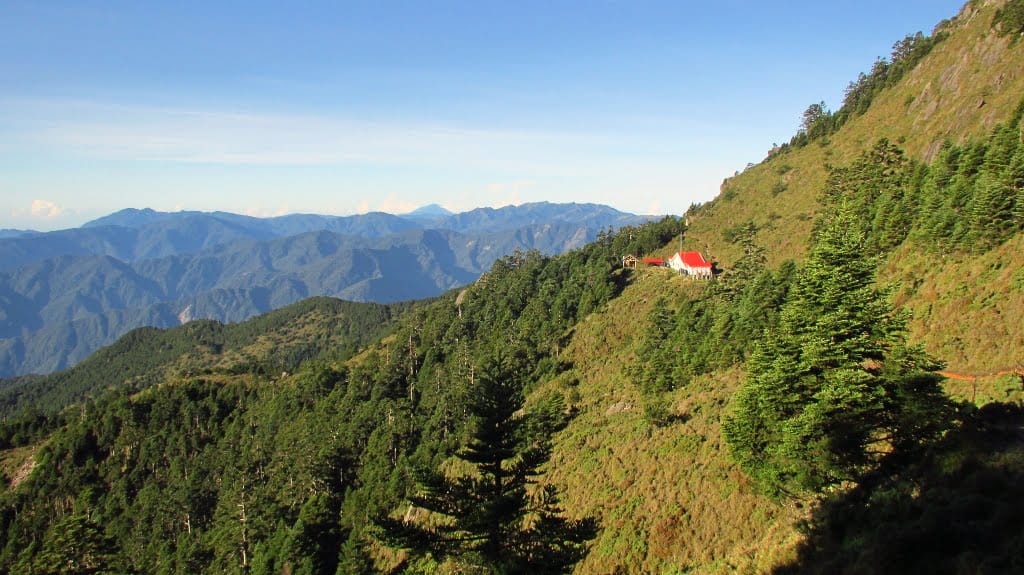
The day’s trail was just 4.7 km long and noticeably easier. With a height difference of only 250 m, it felt almost like walking on a plain compared to the first day’s grueling climb.

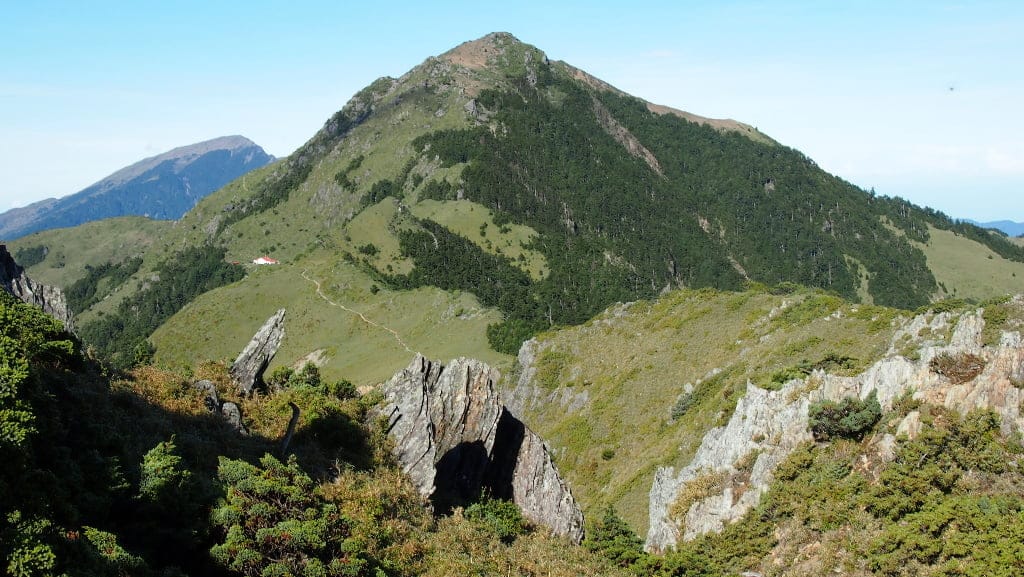
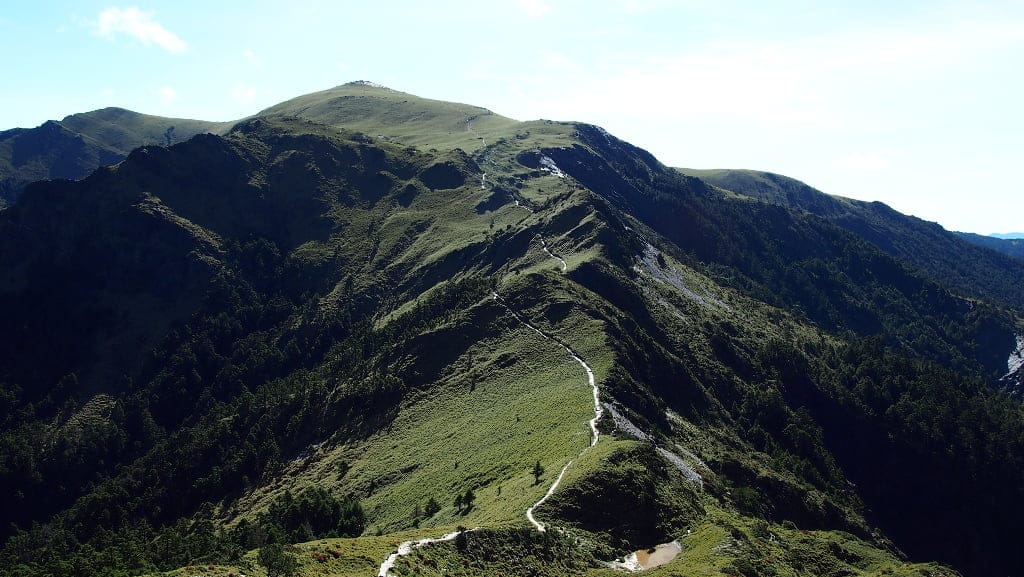
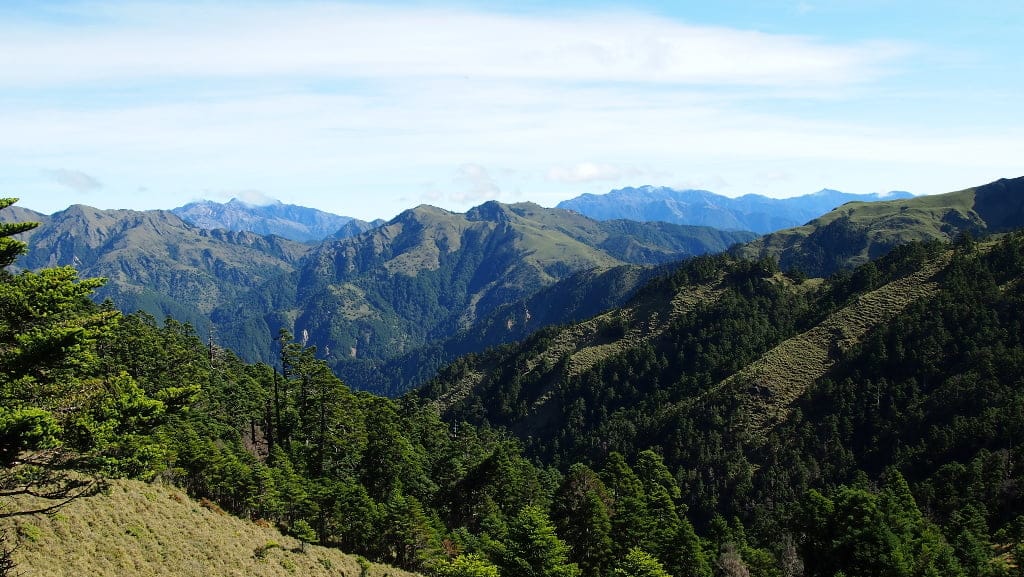
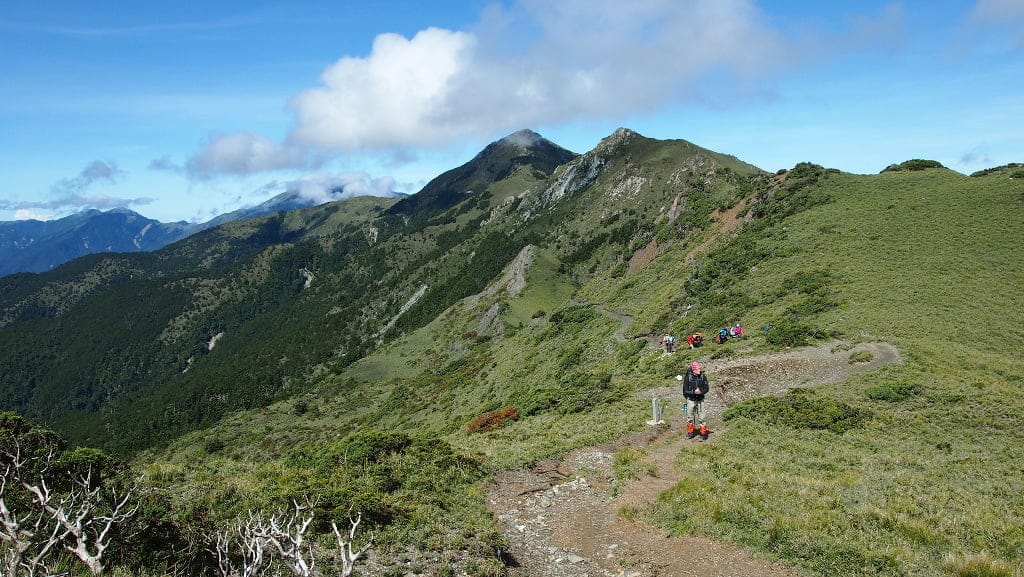
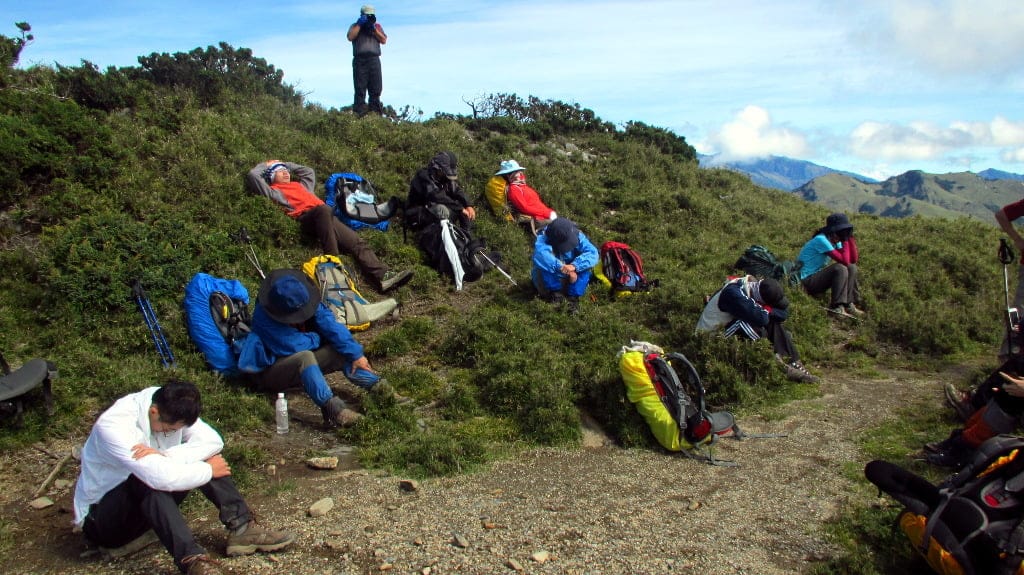
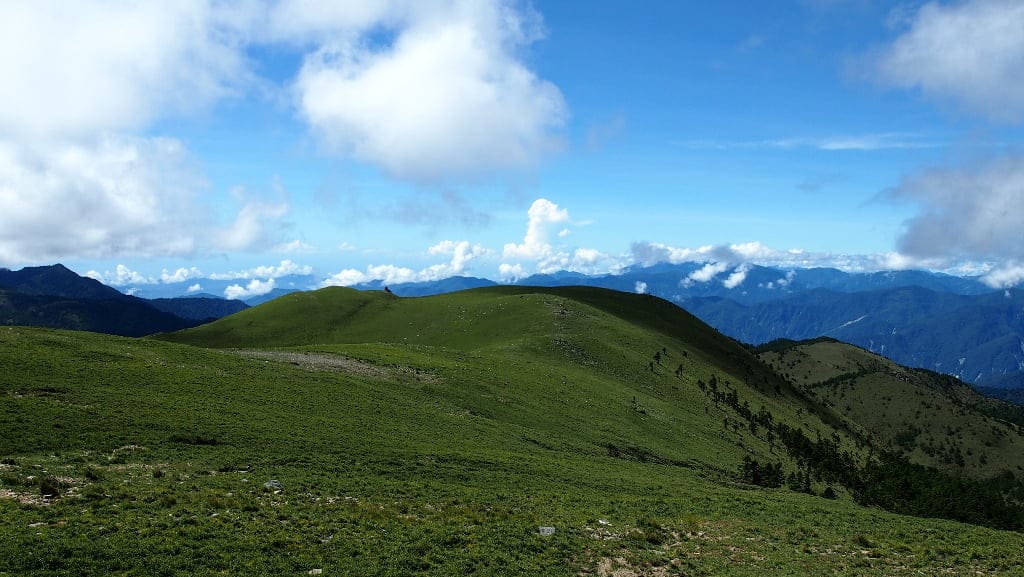
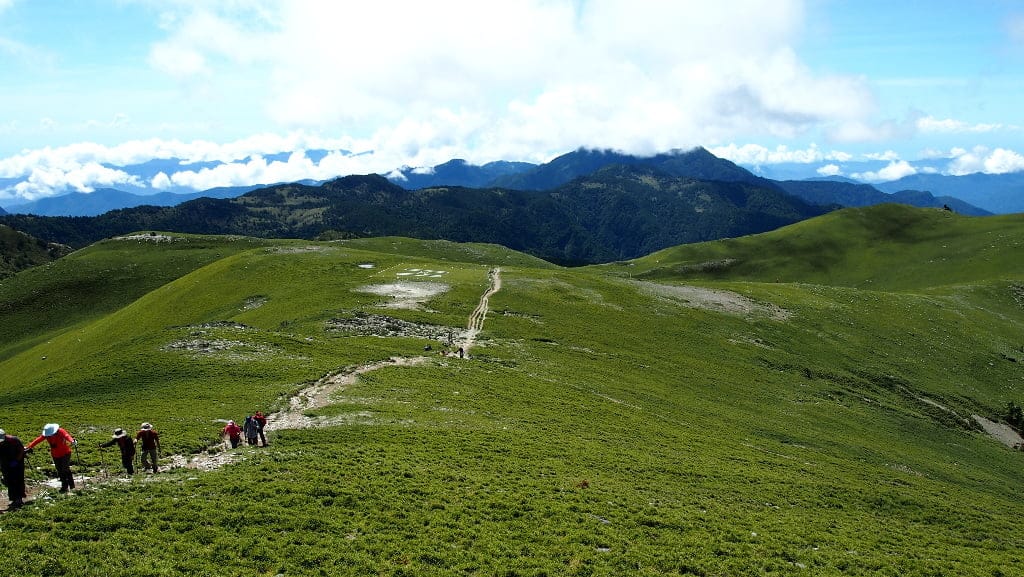
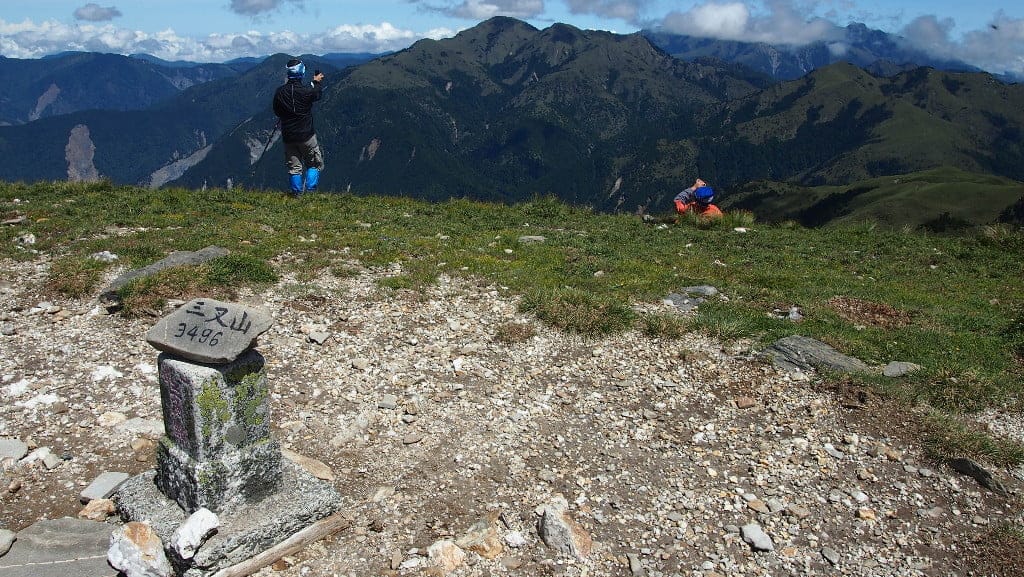
From the peak of Mount Sancha, at 3,496 m above sea level, we were treated to stunning panoramic views. Taiwan’s high mountains aren’t as steep as the Alps, making them relatively accessible for high-altitude hikes.
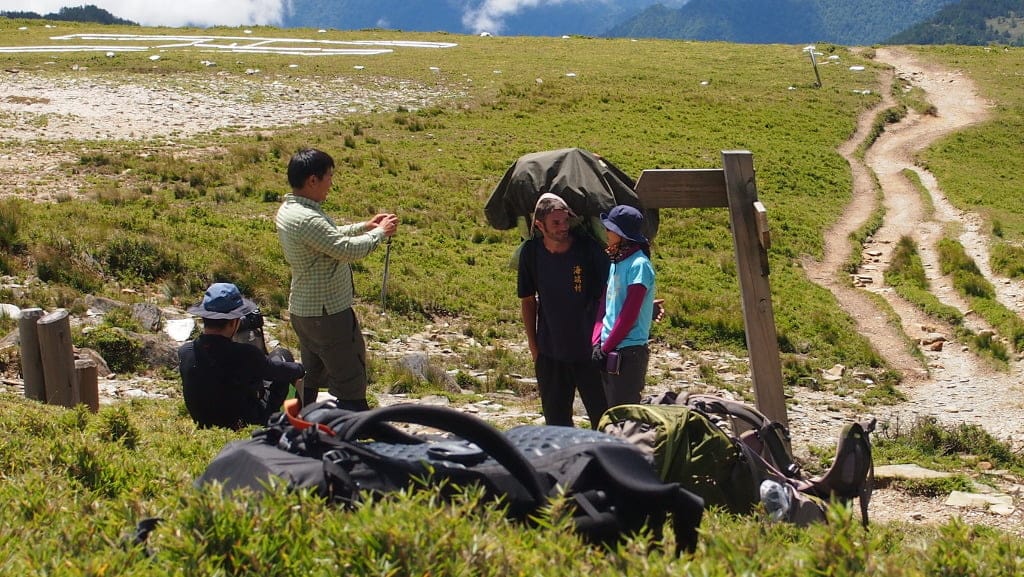
On the way, we met an interesting couple—a young French man and his Taiwanese girlfriend. At first, I thought, “Poor guy, carrying all the gear for both of them!” Later, I learned he worked with the Indigenous porters, carrying equipment for hiking groups. He admitted it was a tough job but well-paid, and it allowed him to spend the summer exploring Taiwan’s breathtaking high mountains.
From Mount Sancha, it was a short trek to Jiaming Lake, which we reached by early afternoon.
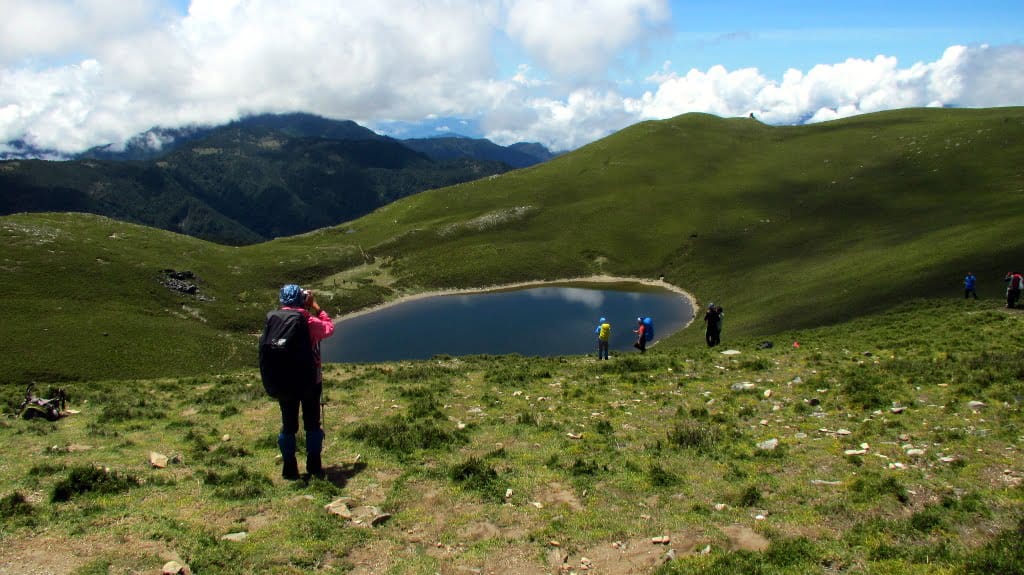
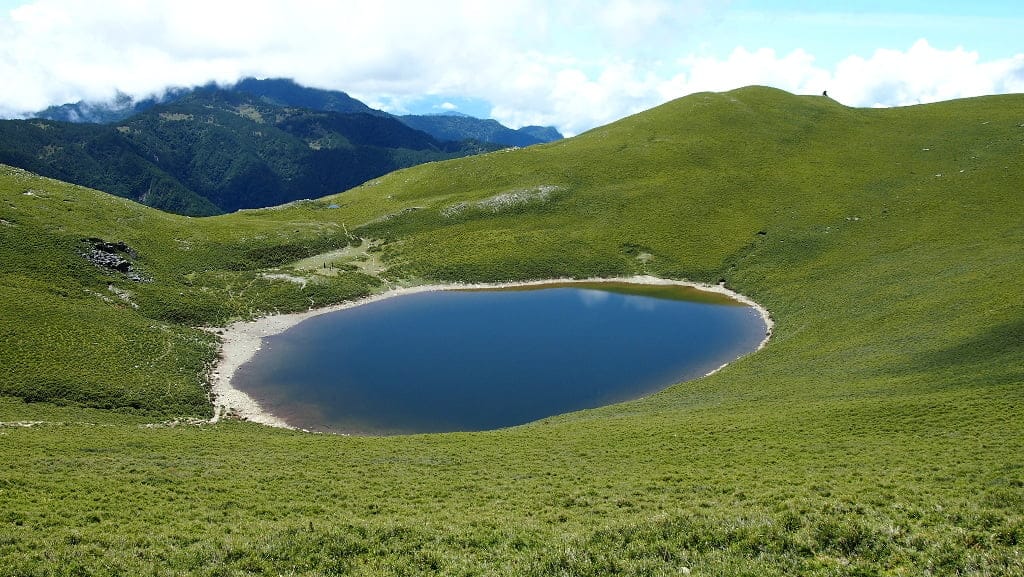
The lake, tranquil and devoid of people, was a sight to behold. We pitched our tents along its shores—a practice still allowed at the time. However, camping at the lake has since been prohibited, which I think is a good thing. In recent years, Jiaming Lake has become a very popular destination, and allowing large groups to camp there would risk damaging its fragile environment.
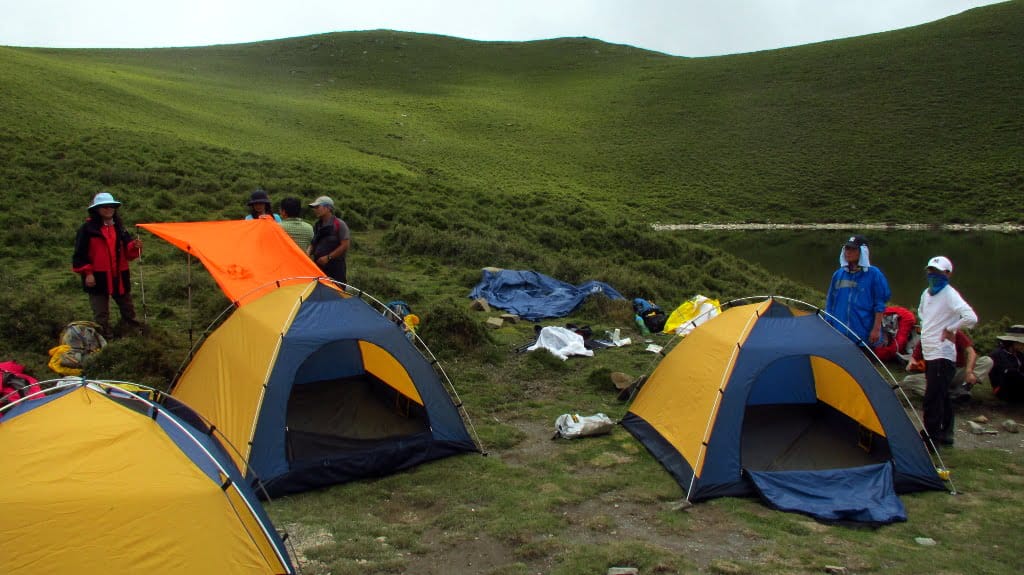
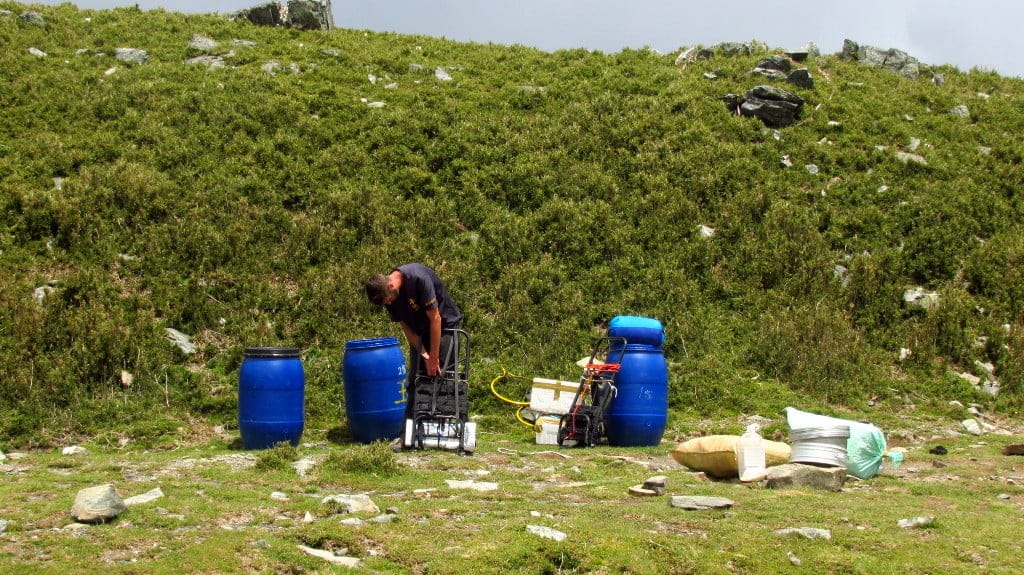
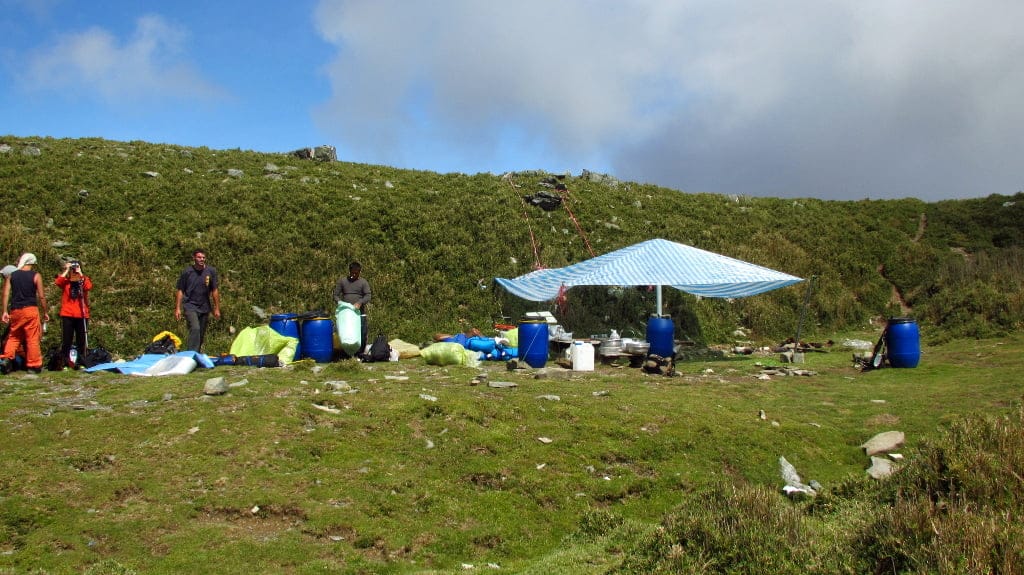
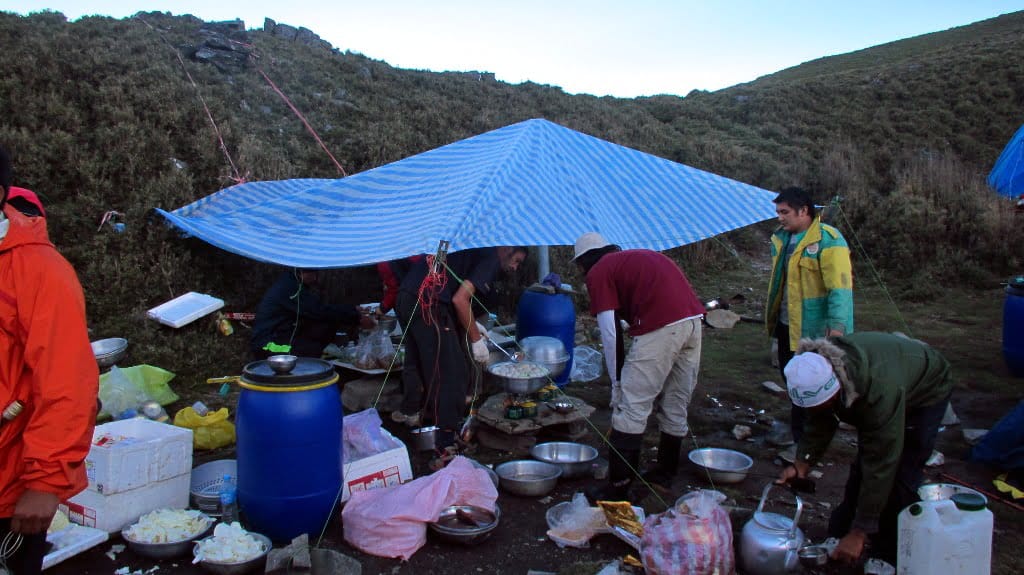
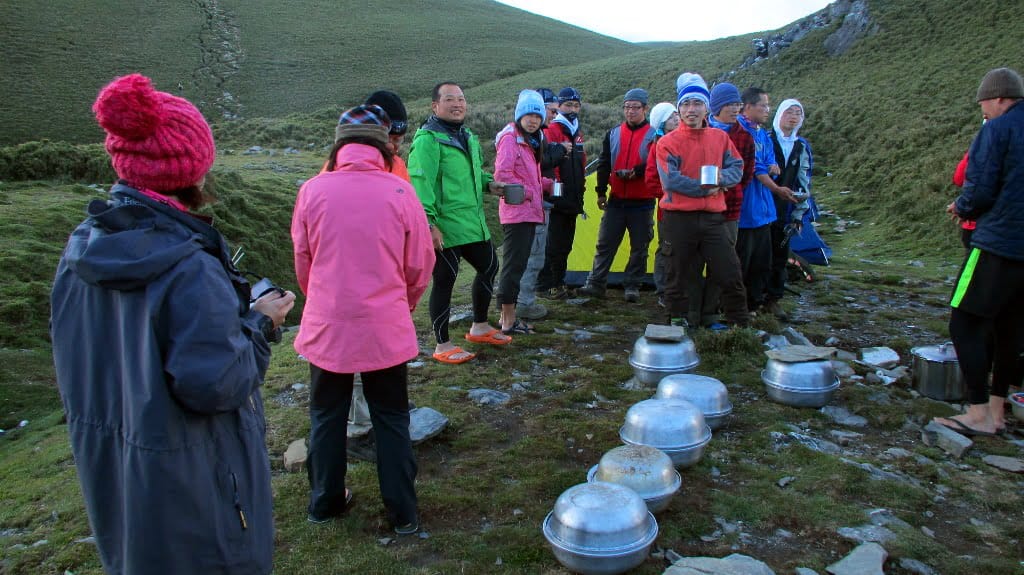
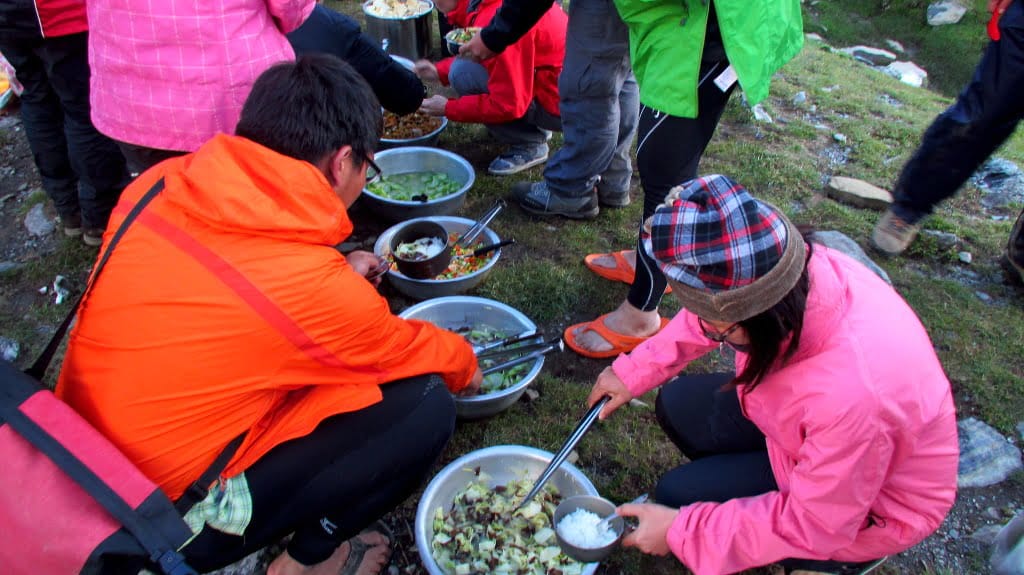
That night, the sky was crystal clear, and the stars were breathtaking. I hadn’t seen such a vivid night sky in Taiwan before. The Milky Way was visible in all its glory, a sight that’s nearly impossible to experience in Taipei due to light pollution.
Later in the night, a group of deer wandered into our campsite. They seemed completely unafraid of humans, roaming freely between our tents. Hearing them so close while lying in my tent was a surreal experience.
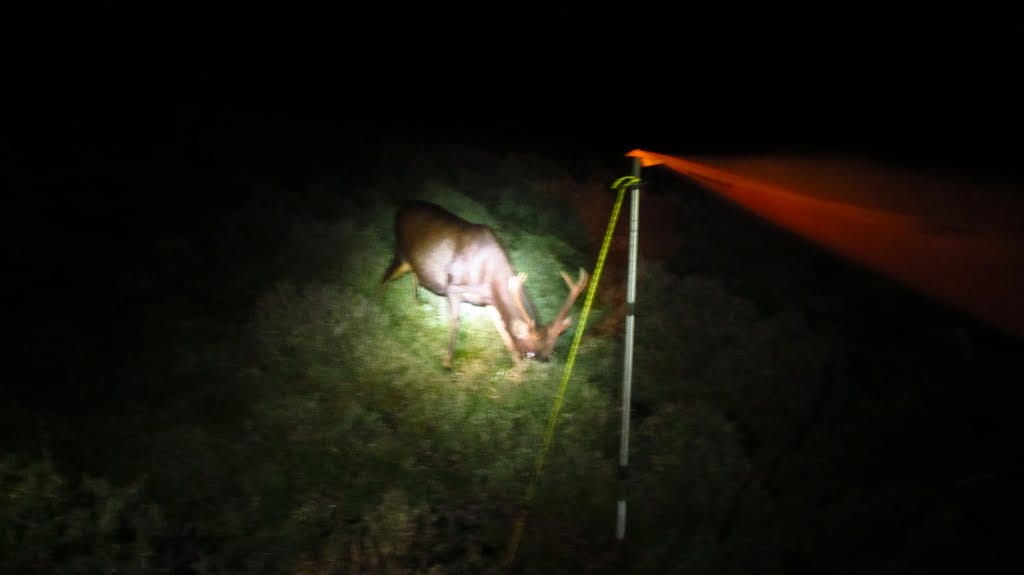
At dawn, we had breakfast—mostly leftovers from the previous night’s dinner—and prepared to leave. As the sun rose over the high mountains, I couldn’t help but understand why so many Taiwanese people flock to Alishan for its famous sunrises.
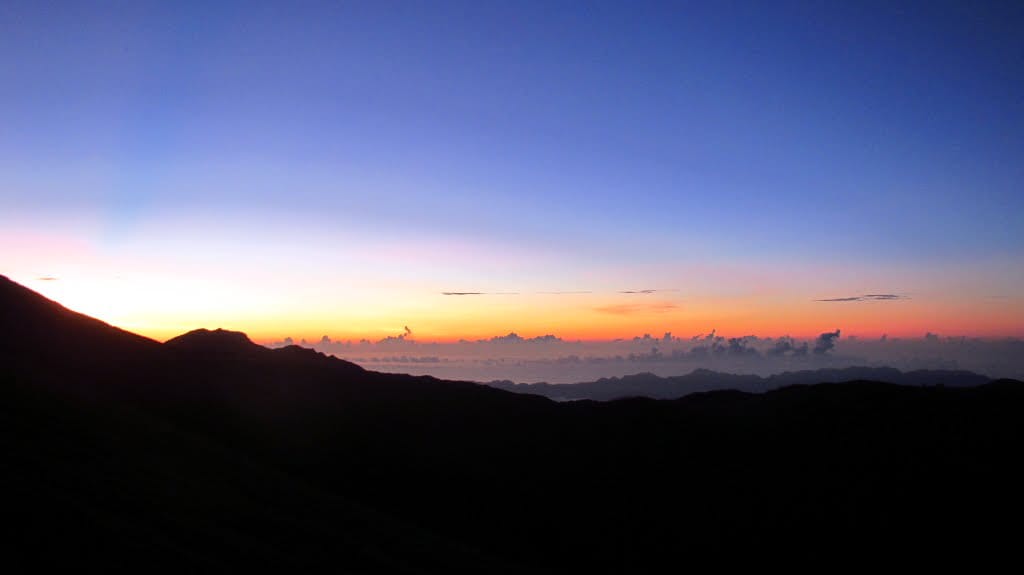
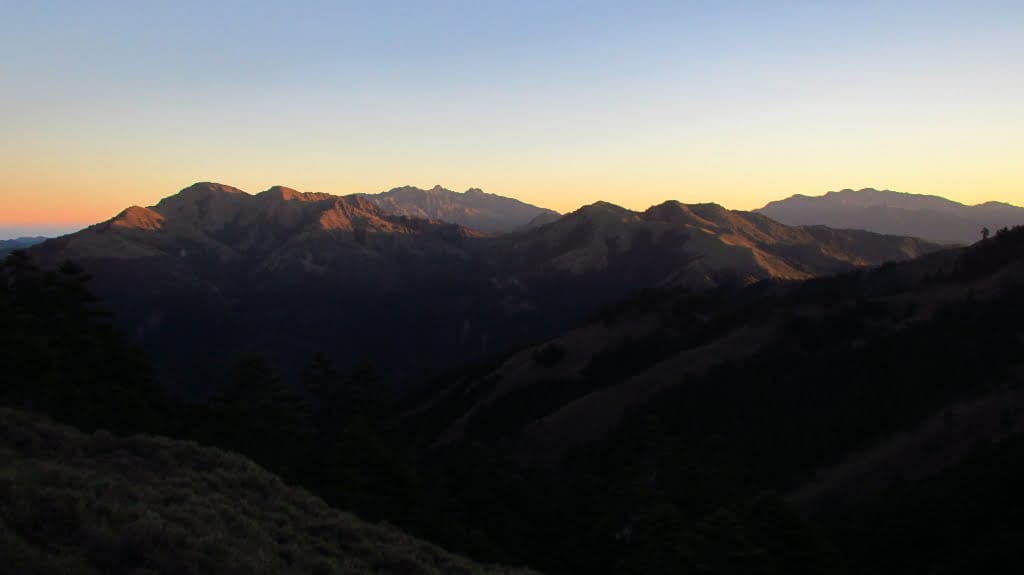
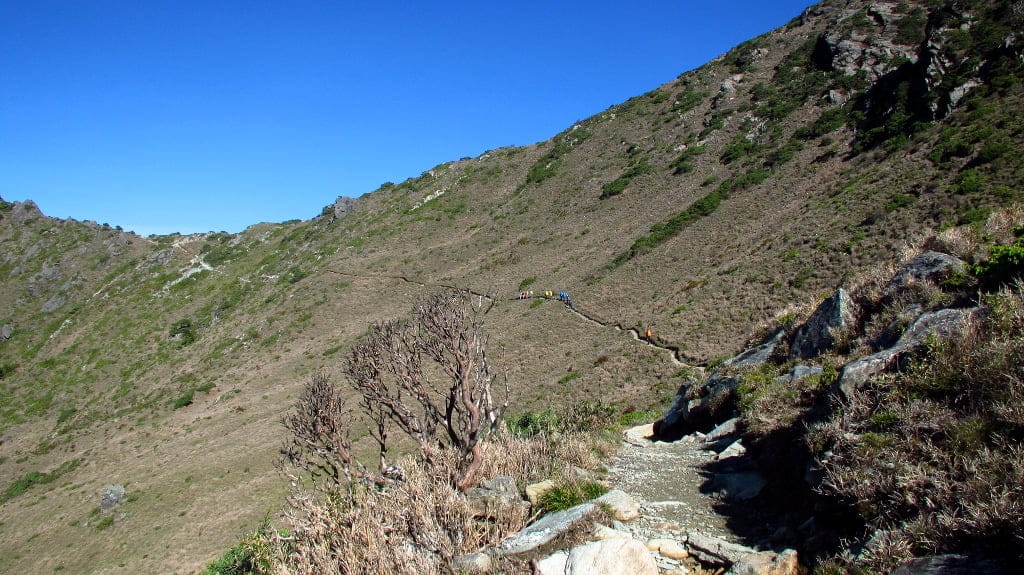
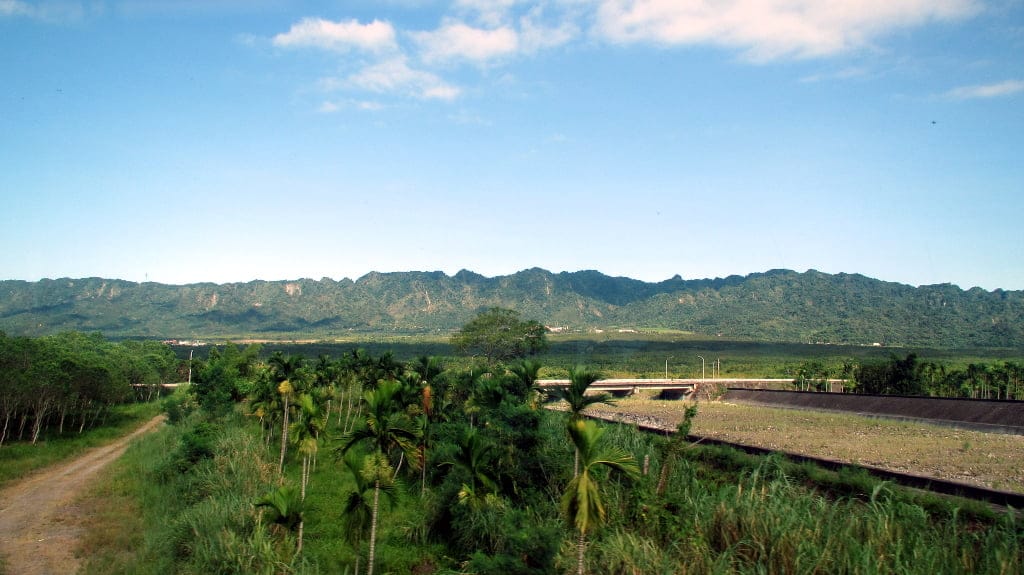
Enjoyed this article? You can get early access to my maps, blog posts, and exclusive content by becoming a supporter on Ko-fi. I also share updates and insights on Facebook, post photography and snapshots on Instagram (@eyes_on_taiwan), and showcase maps and Taiwan data on Instagram (@taiwan.maps.dataviz). You’ll also find me on Threads and Bluesky, where I share new maps and links to blog articles. Looking forward to connecting with you!
If you like this content and don’t want to miss new blog posts, consider subscribing to our newsletter!
